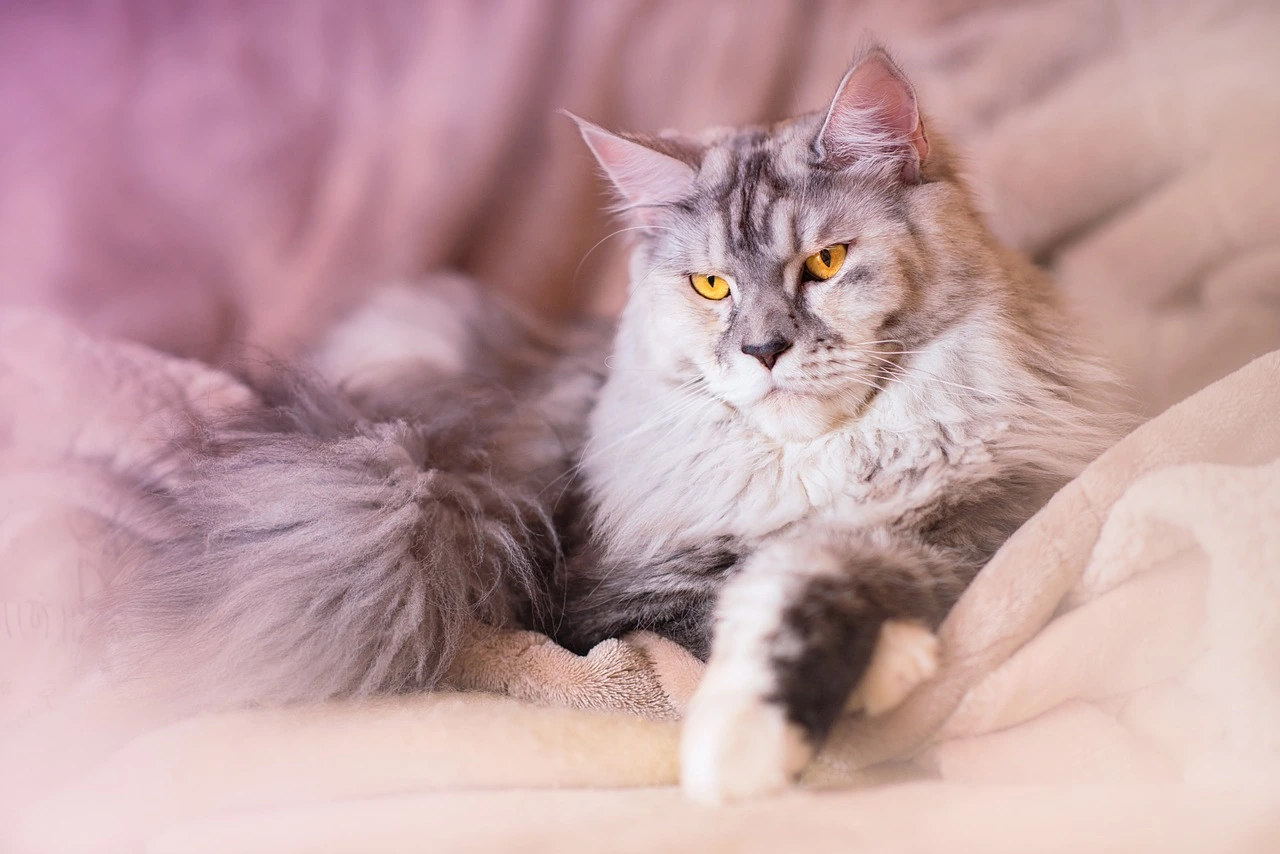If you’re considering adopting a Maine Coon but suffer from allergies, you might be wondering: Are Maine Coon cats hypoallergenic? It’s a fair question—after all, these majestic felines are beloved for their affectionate nature and luxurious coats. However, understanding the relationship between cat breeds and allergies is key to finding the right pet for your home. In this article, we’ll unpack the facts about Maine Coon cats and allergies, discuss whether they’re a good fit for allergy sufferers, and explore ways to manage pet-related allergies effectively.
Table of Contents
- What Does Hypoallergenic Mean?
- Are Maine Coon Cats Hypoallergenic?
- Why Do Cats Cause Allergies?
- Do Maine Coons Shed More Than Other Cats?
- Tips for Allergy Sufferers Who Love Cats
- Other Cat Breeds to Consider
- Frequently Asked Questions
- Conclusion
What Does Hypoallergenic Mean?
Before diving into Maine Coon cats specifically, let’s clarify what “hypoallergenic” actually means. Many people assume hypoallergenic means “allergy-free,” but it’s not quite that simple. A hypoallergenic pet produces fewer allergens than other animals, which may reduce the likelihood of triggering allergic reactions.
For cats, allergens primarily come from a protein called Fel d 1, found in their saliva, skin, and dander. While no cat breed is completely allergen-free, some breeds are said to be less likely to provoke allergies.
Are Maine Coon Cats Hypoallergenic?
The short answer is no, Maine Coon cats are not hypoallergenic. Like all cats, they produce Fel d 1, the protein responsible for most cat allergies. However, the amount of Fel d 1 can vary from cat to cat, and some individuals might tolerate Maine Coons better than other breeds.
Despite their non-hypoallergenic status, many people with mild allergies find ways to live comfortably with Maine Coons. Their friendly disposition, playful nature, and stunning appearance make them worth the extra effort for many cat lovers.
Why Do Cats Cause Allergies?
You might wonder, “Why am I allergic to cats in the first place?” Cat allergies are primarily caused by proteins found in:
- Saliva: Cats groom themselves frequently, spreading allergenic proteins onto their fur.
- Dander: Dead skin cells that flake off and become airborne, carrying allergens.
- Urine: This can also contain allergens, especially when cleaning the litter box.
For Maine Coons, their long, thick fur can trap and spread allergens more than short-haired breeds, which may exacerbate symptoms for allergy sufferers.
Do Maine Coons Shed More Than Other Cats?
Maine Coons are heavy shedders, especially during seasonal changes like spring and fall. Their thick double coat requires regular grooming to manage shedding and minimize loose fur in your home.
| Cat Breed | Shedding Level | Hypoallergenic? |
|---|---|---|
| Maine Coon | High | No |
| Siamese | Low to Moderate | No |
| Siberian | Moderate | Considered hypoallergenic by some |
| Sphynx (Hairless) | Minimal | No, but lower allergens |
Tips for Allergy Sufferers Who Love Cats
Living with a Maine Coon (or any cat) as an allergy sufferer isn’t impossible. Here are some practical tips to make it work:
- Groom Your Cat Regularly: Brushing your Maine Coon daily reduces shedding and dander buildup.
- Create Allergy-Free Zones: Keep your bedroom off-limits to the cat.
- Use Air Purifiers: HEPA filters can help remove allergens from the air.
- Wash Bedding and Furniture Covers Frequently: This minimizes allergen buildup.
- Consult Your Doctor: Allergy medications or immunotherapy shots can make a big difference.
Other Cat Breeds to Consider
If your allergies are severe but you still want a feline friend, some cat breeds might be more suitable:
- Siberian Cats: Often touted as a hypoallergenic breed due to lower Fel d 1 production.
- Balinese Cats: Sometimes called the “hypoallergenic Siamese,” they produce less Fel d 1 than many other breeds.
- Sphynx Cats: Hairless cats don’t shed fur, which can reduce allergen spread, though they still produce dander.
Frequently Asked Questions
1. Are there any truly hypoallergenic cat breeds?
No cat breed is 100% hypoallergenic, but breeds like the Siberian and Balinese are often better tolerated by allergy sufferers.
2. Can grooming my Maine Coon reduce allergens?
Yes! Regular grooming helps reduce loose fur and dander, which can minimize allergens in your home.
3. Should I avoid getting a Maine Coon if I have allergies?
Not necessarily. If your allergies are mild, taking precautions like grooming and using air purifiers might allow you to coexist happily with a Maine Coon.
Conclusion
So, are Maine Coon cats hypoallergenic? While these stunning felines aren’t allergy-friendly by definition, they can still make wonderful pets for some allergy sufferers. With their affectionate nature, intelligence, and beauty, many people find the effort to manage allergies well worth it.
“Cats choose us; we don’t own them.” – Ellen Perry Berkeley






